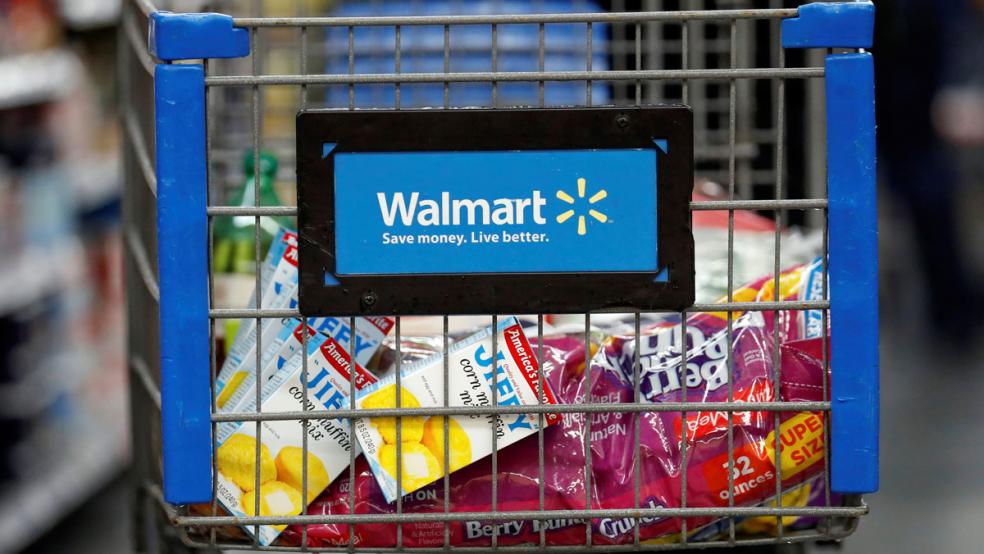Investors are grossly overestimating the impact to Walmart of Amazon's bid for Whole Foods, according to Moody's.
Amazon's offer of $13.7 billion, or $42 a share, for the natural and organic grocery chain won't give the ecommerce giant "any discernible edge" over Walmart, writes Charlie O'Shea, lead analyst for Moody's Investors Service, in a research note published Wednesday.
Related: How the Amazon-Whole Foods Deal Could Squeeze the US Economy
"We have been asked by investors and media over the past few days, in almost breathless tones, 'What does Walmart do?' and 'Isn’t Walmart scared?'" O'Shea said. "Realistically speaking, a challenged $16 billion food retailer is merely changing owners. And Walmart, already the world’s largest retailer, also is the world’s biggest grocer."
Walmart's stock fell more than 4% after news of the Amazon-Whole Foods deal emerged last week, and it has yet to recover.
But Walmart is opening new stores while other retailers are shrinking, and Moody's expects its food business to "accelerate at a rapid pace, with buy-online/pick-up-in-store its latest weapon."
With more than 5,330 locations throughout the US that are within 10 miles of 90% of the population, there's no company better positioned than Walmart to dominate the grocery industry, he said.
Related: Grocery Stocks Are Reeling as Amazon Gobbles Up Whole Foods
He described Walmart's Neighborhood Market stores — which are much smaller than its Supercenters and primarily focus on groceries and pharmacy — as the "linchpin" to Walmart's success.
The company has doubled the number of Neighborhood Market stores to 700 over the last three years.
"The growth of the Neighborhood Market is the biggest risk for traditional supermarkets, including Whole Foods," he wrote.
The smaller-format stores are convenient for fill-in trips between visits to Supercenters or Sam's Club, and prices are comparable to Walmart's Supercenter prices.
"For a segment that is dependent on convenience, ease, and location, we believe Walmart’s dominance in this segment will only increase over time, and that if online grocery delivery can ever reach scale, Walmart is the retailer that will benefit the most as it has the most complete distribution network," O'Shea wrote.
Amazon's bid to buy Whole Foods isn't actually a threat to Walmart at all, but just an indication of the Amazon's recognition that it would never be able to scale its food business without a brick-and-mortar presence, he said.
This article originally appeared on Business Insider. Read more from Business Insider:
The rise and fall of Travis Kalanick, Uber's embattled billionaire founder who just resigned as CEO



